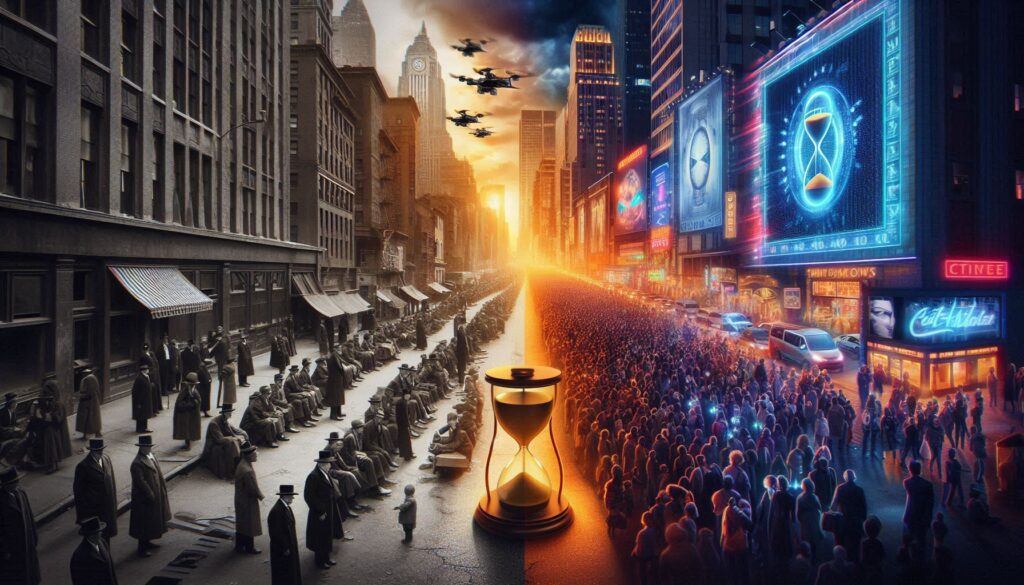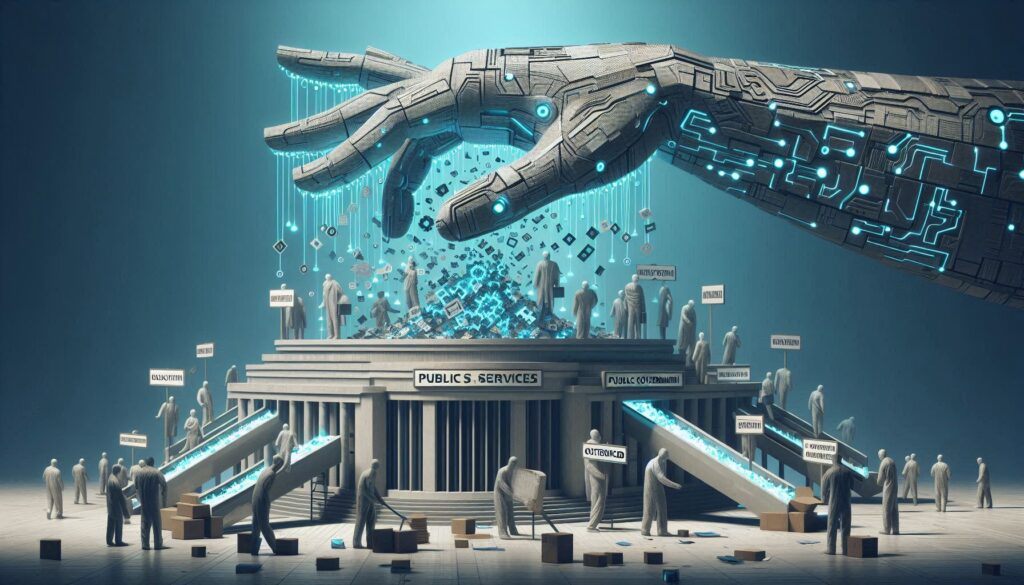The Fallout franchise is a post-apocalyptic wasteland teeming with irradiated mutants and crumbling remnants of a bygone era. But beneath the layers of dust and despair lies a deeper critique – a scathing commentary on unchecked consumerism and the dangers of corporate greed. This article delves into the Fallout universe, exploring how it reflects real-world overconsumption, warns against materialism and blind loyalty, and ultimately offers lessons for navigating our own consumerist society.
Fallout Universe: A Mirror to Real-World Excess
The pre-war America depicted in Fallout is a caricature of 1950s consumerism. Advertisements plaster every surface, from the ubiquitous red and white of Nuka-Cola to the cheery robots hawking the latest gadgets. Disposable products reign supreme, with characters lamenting the “planned obsolescence” that forced them to constantly upgrade their Mr. Handy robots or Pip-Boy models. Vault-Tec, the megacorporation responsible for creating underground shelters, embodies this excess. Their marketing campaign capitalizes on fear, pushing Vaults as the ultimate luxury item, a complete with its own branded furniture and appliances. This warped vision satirizes the real-world conflation of happiness with material possessions and the manipulation tactics corporations employ to drive sales.
Nuka-Cola: A Case Study in Consumer Manipulation
Nuka-Cola, the ubiquitous soda brand in Fallout, serves as a prime example of Fallout’s critique of consumerism. Pre-war advertisements portray it as the quintessential symbol of happiness and togetherness. However, the reality is far grimmer. Nuka-Cola Quantum, a radioactive variant created during the nuclear war, illustrates the dangers of unchecked consumerism. People readily consume it despite its health risks, showcasing the allure of branding and the potential for corporations to prioritize profit over safety. Furthermore, the existence of Quantum variants like Nuka-Cola Cherry and Nuka-Cola Dark implies a relentless marketing push for new products, creating a never-ending cycle of consumption.

Diamond City: A Glimmer of Consumerism’s Dark Side
Diamond City, a post-apocalyptic settlement built upon a pre-war baseball stadium, offers a glimpse into the dark side of consumerism’s enduring power. While providing a haven for survivors, the city is heavily influenced by market forces. Shopkeepers like Mo Cronin peddle pre-war luxuries at exorbitant prices, preying on the nostalgia and desperation of the wasteland’s inhabitants. This perpetuates a class system where the wealthy hoard pre-war goods, while others struggle to meet basic needs. Diamond City serves as a chilling reminder that even in the face of apocalypse, the allure of material possessions can create societal divisions and exploitation.
Mr. Handy: A Critique of Planned Obsolescence
Throughout the Fallout series, Mr. Handy robots serve as a constant reminder of the dangers of planned obsolescence. These once-ubiquitous robots, designed to perform household chores, are now malfunctioning relics, their outdated programming and deteriorating parts rendering them useless. This critique resonates with our own world, where technological advancements often come at the expense of durability. Manufacturers prioritize creating products with shorter lifespans, forcing consumers to constantly upgrade for the latest features. The plight of Mr. Handy robots serves as a warning against the environmental and economic costs of planned obsolescence.
Parallels to Consumerism and Corporate Greed
The Fallout world lays bare the consequences of unfettered consumerism. The obsession with convenience and disposable products leads to a society dependent on robots for basic needs, fostering social isolation and neglecting the value of resourcefulness. The corporations, unchecked by regulation or ethical considerations, prioritize profit over safety, seen in the shoddy construction of Vaults and the reckless pursuit of nuclear technology. For instance, the RobCo Industries, another megacorporation, are responsible for creating the Nuka-Cola Quantum recipe, prioritizing profit over the potential health risks posed by its radioactive content. This callous disregard for human well-being mirrors real-world corporate scandals involving environmental pollution or unsafe working conditions.

Cautionary Tales: The Pitfalls of Materialism and False Loyalty
Fallout paints a stark picture of materialism’s pitfalls. Factions like the Brotherhood of Steel, initially driven by the desire to secure pre-war technology, become corrupted by their obsession with weaponry. Raider gangs, consumed by a need for possessions, resort to violence and brutality. The fate of The Hub, a pre-war trading center that descended into chaos due to rampant consumerism and greed, serves as a chilling example. These narratives illustrate how the pursuit of material wealth can erode moral compasses and fracture societies.
Furthermore, Fallout exposes the dangers of blind loyalty to corporations. Vault dwellers, for instance, are conditioned to unquestioningly trust Vault-Tec, leading to their imprisonment and even death in some cases. This manipulation is evident in Vault-Tec’s promotional materials




